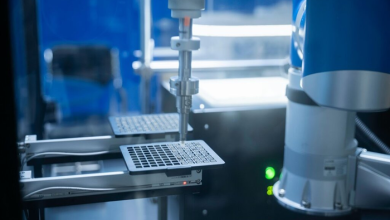
When it comes to becoming pregnant, time is everything, right? Knowing when you ovulate and have periods might help you conceive. This is where a period calculator comes in handy. An ‘ovulation’ or ‘period’ calculator is like an ovulation calendar and charts. The difference is that a period calculator does the math for you and provides accurate ovulation information in seconds.
But its job does not stop here; it helps with much more. So, here’s a comprehensive article on how ovulation calculators function and how you can analyze the data. Then it will go over tried-and-true tips to increase your chances of conceiving.
Why Do You Need a Period Calculator?
Ovulation is the time when an embryo is completely ready for fertilization. It usually takes about 14 days before her next period. This means it’s the best moment to conceive or avoid pregnancy.
So, knowing when ovulation happens helps you better understand your fertility. A period calculator is a simple way to predict ovulation. Plus, it tracks your fertile days based on the dates of your period. It’s also a good idea to look for indications like clear, flexible cervical mucus or a little increase in body temperature.
How to Use the Period Calculator?
You’ve probably heard about an online period calculator, so, it is a tool that analyzes the duration of your menstrual cycle to predict when you will most likely ovulate. It may be quite useful for women who are attempting to conceive. Because it can determine the days of the most fertile period. Below is the more detailed instructions manual for using a period calculator:
- Step 1:Choose the ‘first day of your last period’, which is the day on the calendar when your last period began.
- Step 2:From the selection box, choose the duration of your previous period.
- Step 3:Enter the typical duration of your menstrual period.
- Step 4: Press “Calculate” to determine the viable window of the next and previous 3 months, including period days and the most probable ovulation days.
When Is the Best Time to Conceive?
The optimal time to have sexual interactions to conceive is within your fertile or ovulation period. Sperm can live for 2-3 days. Whereas, eggs are viable for roughly 24 hours after discharge. To increase your chances of being pregnant, have intercourse 5 days before predicted ovulation or at least one day following expected ovulation. And if you want to know a more precise date or day, use the Period Calculator. Additionally, maintaining a healthy routine and skincare regimen can also improve your overall well-being. Products like OMG Cream can help with personal care, contributing to overall health during this important time.
Tips to Get Pregnant Faster
Want to increase your chances of becoming pregnant? Here are some suggestions to try:
1. Take the Prenatal Vitamin
At least one month before you begin trying for a child, start taking prenatal vitamins. One research found that women who took prenatal vitamins while having fertility treatments were twice as likely to become pregnant as those who merely took a folic acid supplement throughout the same therapies. So, it’s worth a try!
2. Get Proper Sleep
Aim for seven or eight hours of good sleep when attempting to conceive. Why? Because irregular periods have been the cause of inadequate sleep. In the end, it affects fertility. Sleep is also essential for avoiding load, which has been found to have a harmful influence on pregnancy planning.
3. Eat Well
Eating the appropriate meals and nutrients while trying to conceive will help you get pregnant faster. Also, ensure your daily diet includes lots of healthy fats, such as calcium, protein, omega-3s, folate, iron, and fiber. If you smoke, it’s the moment to quit because it has been found to hurt fertility and pregnancy. In addition, take exercise regularly and have a massage.
4. Avoid Stress
Stress has been proven a main factor in delaying ovulation. No doubt, anxiety, and depression indirectly affect your hormones. Plus, it increases the frequency of uterine contractions, making implantation more challenging. So in this critical time, attend a yoga class, soak in a bubble bath, or write in a journal.
5. Try a Period Calculator
If you want to learn more about your cycle and fertile window, you should use a period calculator. This accurate calculator will surely help you better understand your period cycle. As a result, you can predict your fertile window.
Signs of Ovulation
After predicting their period cycle, some women keep an eye on signals of ovulation in their bodies. The most common ovulation symptoms may include the following:
- Mild discomfort on one side of your pelvis
- Increased, slippery cervical fluid
- Heightened sex drive
- Mood swings and increased energy
- Breast tenderness
- You could feel a tinge of pain or minor cramping in your lower belly
To Wrap Up
Using a period calculator is a helpful way to track your ovulation. By knowing your most fertile days, you can surely increase your rates of getting pregnant. And, if you start living a healthy lifestyle and stop overthinking, this simple tool can make a big difference. Want to track your cycle? Use our Period Calculator now and take the next step toward growing your family!




